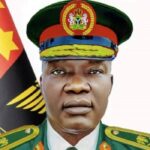
This discussion will not contest that perspective, as it is often challenging to sway someone who has firmly made up their mind. As a philosopher once said, “the most difficult person to negotiate with is that man who has made up his mind.”. Blaming someone or something for any unfavorable circumstance, also known as ‘scapegoatism’ is a prevalent practice in Nigeria, hence there’s no point in challenging the biased portrayal of how Way and Means supposedly devastated the economy and caused inflation.
Rather than a challenge, this piece aims to present a counter-argument to the notion that despite acquiring overdrafts totalling trillions from the CBN, there was a lack of records regarding the purpose of these funds. Allegedly, the Debt Management Office (DMO) was aware of the loans, but not of their intended use.
Before delving deeper, it’s crucial to examine the performance of the budget during that period, particularly the 2022 budget. At that time, the global economy, including Nigeria, an emerging market and developing economy, faced significant strains.
As of September 2022, the federal government’s revenue stood at N4.19 trillion, approximately 67.8 percent of the target. Oil revenues, constituting 32.6 percent of the budget’s funding, performed at 32.6 percent, while non-oil tax revenues notably exceeded targets, with Company Income Tax (CIT) and Value Added Tax (VAT) achieving 131.2 percent and 99.8 percent of their respective targets.
This impressive non-oil revenue performance was aided by the Finance Acts of 2020, 2021, and 2022, enhancing revenue generation for the Federal Inland Revenue Service (FIRS). However, spending for the 2022 budget fell short by 16.4 percent, leaving a deficit of N7.35 trillion, with 92 percent of debt financing obtained domestically.
The government’s revenue fell short to fund the budget, raising questions about coping mechanisms. In 2016, Nigeria earned just $10 billion from crude oil, insufficient to cover even recurrent expenditures, let alone capital outlays. Importantly, the total Way and Means loans were accrued over seven years, not just within the 2022 fiscal year as depicted.
Amidst discussions about unaccounted funds, the government under President Mohammadu Buhari established several financial mechanisms such as the Infrastructure Corporation of Nigeria (InfraCorp) with N1 trillion seed capital. Additionally, the Presidential Infrastructure Development Fund (PIDF) invested over a billion dollars in flagship projects, including road construction and infrastructure development. During this same period, the Presidential Infrastructure Development Fund (PIDF) invested over a billion dollars in three flagship projects: Lagos-Ibadan Expressway, which was to be completed in May 2023; Second Niger Bridge, which was set and delivered for completion in May 2023, as well as the Abuja-Kaduna-Zaria-Kano Expressway, with two of three sections for completion in May 2023.
Executive Order 7 of 2019 facilitated the Road Infrastructure Development and Refurbishment Investment Tax Credit Scheme, enabling companies to recover construction costs by paying reduced taxes. Notably, significant funds were mobilized through partnerships and Sukuk Bonds for road projects and transportation infrastructure. For instance, about three trillion naira was mobilised or committed through Executive Order 7, for road projects across all six geopolitical zones of the country, by companies like Dangote Group, MTN, BUA, NLNG and NNPC Limited.
The Highway Development and Management Initiative (HDMI), a public-private partnership program was also mooted to mobilise, in its first Phase, over a trillion Naira in private investment into the development and maintenance of 12 Roads, amounting to 1,963km in length. And in the same vein, more than N600 billion worth of Sukuk Bonds were raised since 2017 for more than 40 critical road projects across all six geopolitical zones. Between November 25 and December 13, 2021, the Federal Government handed over to benefiting communities 941 km of completed Sukuk road projects connecting 10 states in five geo-political zones of the country.
In the transportation sector, new terminals for international airports were constructed, runways were refurbished, and investments were made in modernizing accident investigation capabilities, leading to the establishment of the Nigerian Safety Investigation Bureau (NSIB). For clarity, it must be noted that the Abuja International Airport Runway was reconstructed in 2017, for the first time since the Airport was built in the early 1980s. In 2019 President Buhari approved a special fund of N10billion Naira for the reconstruction of the Enugu Airport Runway; it was completed and reopened in August 2020).
The Nigeria’s Accident Investigation Bureau (AIB) was transformed into a multimodal accident investigation body—responsible for investigating accidents across all transport modes—the Nigerian Safety Investigation Bureau (NSIB), following President Buhari’s assent to the NSIB Bill 2022
During this period, then President Buhari also approved funds for the Accident Investigation Bureau (AIB) / Nigerian Safety Investigation Bureau (NSIB) to build a world-class Flight Safety Laboratory (FSL) in Abuja, and train personnel to run it. Now Nigeria no longer has to send aircraft Cockpit Voice Recorders and Flight Data Recorders (“Black Box”) abroad for downloading and analysis.
This narrative isn’t aimed at defending former officials accused of advancing overdrafts via Way and Means beyond the permitted threshold. However, it is essential to set the record straight without misleading casual observers.
Did the loans contribute to inflation, as alleged in some quarters? Certainly. Yet, there are tangible results from these investments, emphasizing the need for the present government to mitigate inflation and reduce reliance on Way and Means for financing public expenditure and meeting governmental obligations.
Ajayi, a Corporate and Business Development Lawyer, wrote in from Lagos




